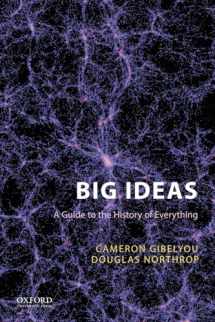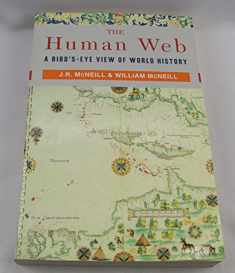
Big Ideas: A Guide to the History of Everything
Book details
Summary
Description
In Big Ideas: A Guide to the History of Everything, Cameron Gibelyou and Douglas Northrop aim to create a novel framework for thinking about the history and future of everything. They grapple throughout the book with issues at the intersection of the natural sciences, history, literature,philosophy, religion, and the humanities. In nine elegantly written chapters, they attempt to make a reasoned analysis of worldviews that underlie historical writing across many fields. Throughout the course of their broad and deep explorations, the authors bring a wide range of voices to bear onfascinating questions of where everything - from the universe as a whole to any particular thing within it - came from, how it got to be the way it is today, and where things might be headed in the future.Big Ideas invites readers to think about genuinely big questions carefully and rigorously, separating received narratives about the "history of everything" from the basic facts discovered by scientific and historical study. The book treats scientific explanation and humanistic interpretation aspartners: inviting those with primarily scientific interests into a humanistic discussion about science and history, and encouraging those with core interests in the humanities into a discussion of how humanities-based ways of thinking might connect with and apply to the natural sciences. Thisengagement helps readers learn a basic narrative of the "history of everything" while constantly provoking thought about big questions and the field of Big History.


We would LOVE it if you could help us and other readers by reviewing the book
Book review




